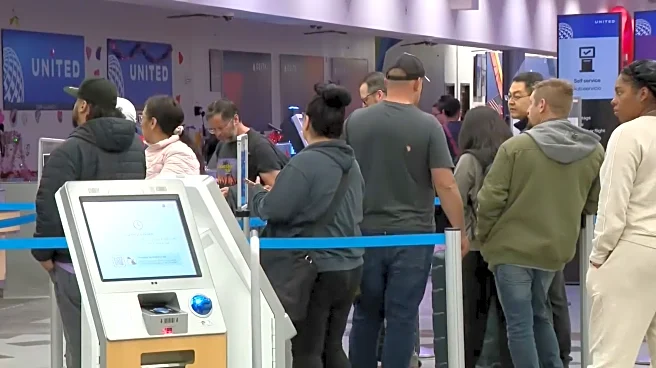Rapid Read • 8 min read
The Trump administration has announced that it will not defend a grant program designed for colleges with significant Hispanic student populations, citing constitutional concerns. The program, established in 1998, aims to support institutions where at least 25% of undergraduates are Hispanic. The Justice Department, in a memo to Congress, stated that the program provides an unconstitutional advantage based on race or ethnicity. This decision follows a lawsuit filed by Tennessee and an anti-affirmative action group, challenging the program's eligibility criteria. The lawsuit argues that Tennessee's public universities serve Hispanic students but do not meet the ethnic threshold required for the grants, resulting in lost funding opportunities. The Justice Department's stance is influenced by a 2023 Supreme Court decision against racial balancing in admissions.
AD
The decision not to defend the Hispanic-Serving Institution program could have significant implications for higher education funding and racial equity policies in the U.S. Hispanic-serving colleges, which enroll a large portion of Latino students, may face financial challenges without these grants. The move aligns with broader efforts by the Trump administration to dismantle diversity and inclusion initiatives, potentially affecting educational opportunities for minority groups. The legal challenge and the administration's stance may also influence future policies regarding race-based funding and affirmative action, impacting how educational institutions address racial disparities.
The lawsuit against the Hispanic-Serving Institution program will proceed, with the national association of Hispanic-serving universities seeking to intervene as a defendant. This group aims to defend the program's constitutionality and its role in leveling the playing field for Latino students. The outcome of this legal battle could set a precedent for similar programs and influence the federal government's approach to race-based funding. Stakeholders, including educational institutions and civil rights organizations, are likely to closely monitor the case and advocate for policies that support minority students.
The Justice Department's decision reflects ongoing debates about race and equity in education. The challenge to the Hispanic-Serving Institution program highlights tensions between efforts to address historical disparities and arguments against race-based advantages. This case may prompt broader discussions about the role of government in promoting diversity and the legal frameworks governing such initiatives. The implications extend beyond education, potentially affecting public policy and societal attitudes towards race and equality.
AD
More Stories You Might Enjoy












